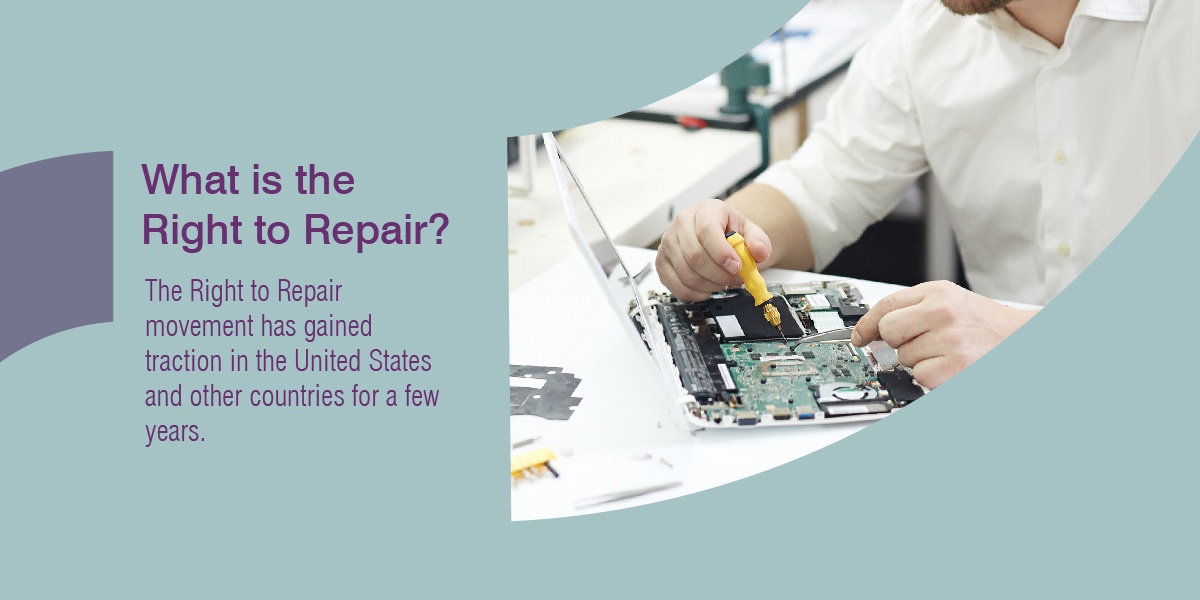Apple has been in the news a lot lately due to its policy of allowing iPhone users greater repair control. This new self-service system will enable customers to obtain genuine Apple OEM components and instructions for DIY iPhone (and eventually Mac) repairs, which have previously been unavailable.
Until now, Apple-approved service providers (AASPs), Apple Stores, and Apple independent repair companies (IRPs) have only obtained factory OEM components for iPhones and Macs. Will this impact how ITAD companies can repurpose equipment? This article will explore some of the possibilities.
What is the Right to Repair?
Right to repair is a movement that aims to provide consumers and independent repair professionals access to the same service information, replacement parts, and tools as authorized dealers or original equipment manufacturers (OEMs).
The Right to Repair movement has gained traction in the United States and other countries for a few years. In fact, 14 states have introduced the right to repair legislation. This new law makes it illegal for electronics manufacturers to void warranties or deny service for equipment due to a third-party part being installed.
What Does the Self-Repair Policy Mean for ITAD?
This new initiative by Apple might make it easier than ever before for customers to repair their own iPhones, impacting how ITAD companies can repurpose or resell equipment.
However, Apple’s policy does not extend to all products on the market. So far, only some iPhone models are eligible for self-service options. Also excluded from this new right-to-repair initiative are laptop and desktop computers that contain custom or sealed-in batteries, such as MacBook Pro and iMac.
This will impact how ITAD companies repurpose equipment for iPhone devices because of the added costs of using Apple-certified technicians to make sure all components are correctly removed from the device before disposal.
On a larger scale, this new policy could also influence other technology brands to adopt similar repair policies. This would then have a domino effect on the ITAD industry as a whole and could make it easier for customers to repair their own devices.
How Can Benefit From Apple’s New Policy
At this point, it is still too early to tell how Apple’s new policy will specifically affect ITAD companies. However, we can anticipate that there might be changes in the ways equipment is recycled and reused. One possibility is that ITAD companies could see an increase in refurbished device sales due to this policy change.
Another possibility is that authorized service providers might experience an increase in the number of devices being brought in for repairs, as customers opt to try and fix their devices themselves before sending them in for more extensive work. Both of these outcomes could positively impact ITAD companies and their bottom line.
Only time will tell how this new policy will play out and ultimately affect the ITAD industry. In the meantime, we will continue to monitor the situation and update our readers as more information becomes available.
Avail Recovery Can Help
If you are looking for an ITAD company to take the burden off your shoulders, consider Avail Recovery. Our team of experienced technicians and engineers can remove all data from your equipment, recycle it responsibly to keep e-waste out of landfills, and prepare the device for resale or reuse with a new owner.
For more information on our services and how we protect your privacy while removing personal data from your devices, please visit our website or contact us at 855-896-2576 or [email protected].

